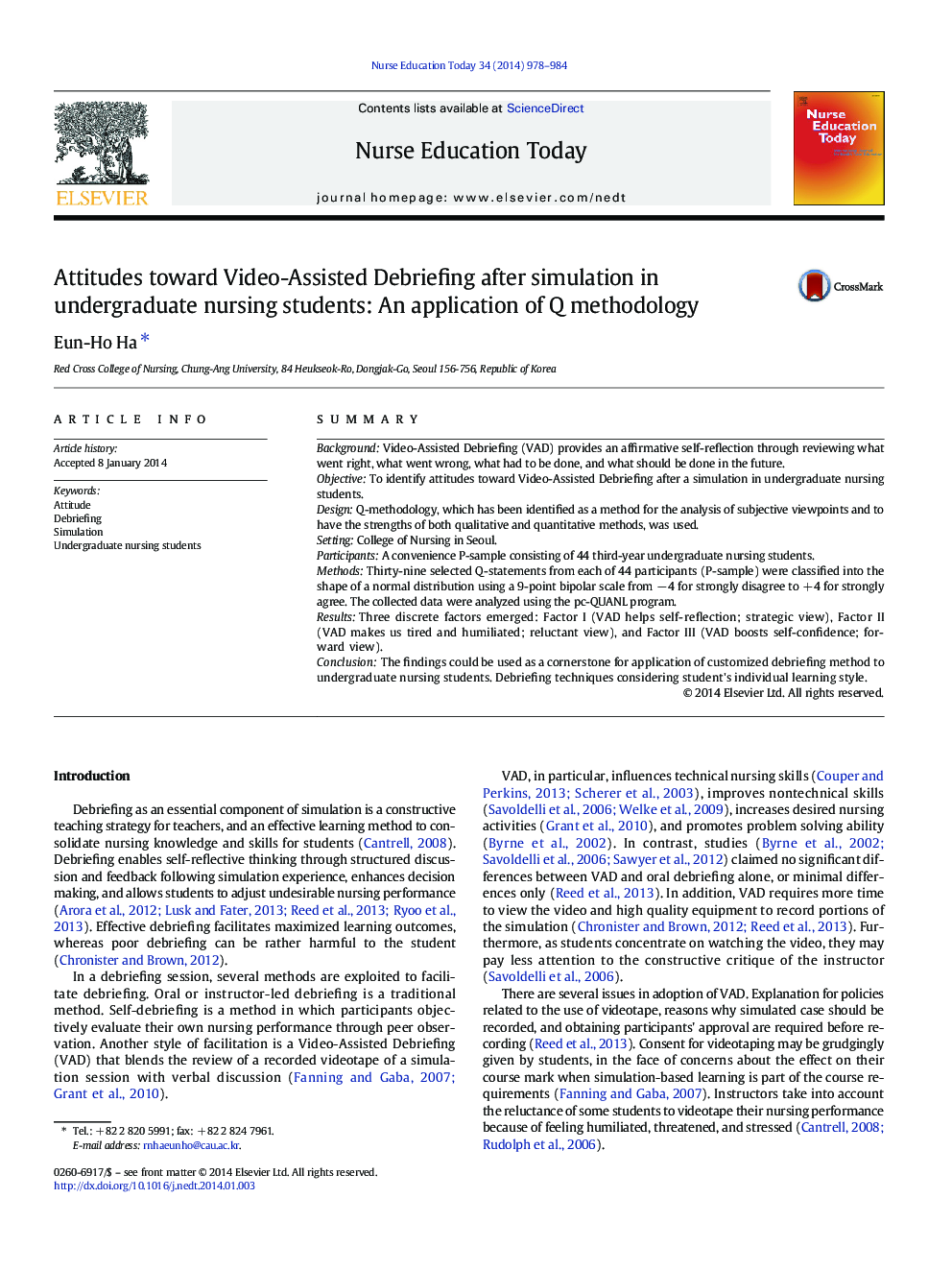| Article ID | Journal | Published Year | Pages | File Type |
|---|---|---|---|---|
| 368224 | Nurse Education Today | 2014 | 7 Pages |
SummaryBackgroundVideo-Assisted Debriefing (VAD) provides an affirmative self-reflection through reviewing what went right, what went wrong, what had to be done, and what should be done in the future.ObjectiveTo identify attitudes toward Video-Assisted Debriefing after a simulation in undergraduate nursing students.DesignQ-methodology, which has been identified as a method for the analysis of subjective viewpoints and to have the strengths of both qualitative and quantitative methods, was used.SettingCollege of Nursing in Seoul.ParticipantsA convenience P-sample consisting of 44 third-year undergraduate nursing students.MethodsThirty-nine selected Q-statements from each of 44 participants (P-sample) were classified into the shape of a normal distribution using a 9-point bipolar scale from − 4 for strongly disagree to + 4 for strongly agree. The collected data were analyzed using the pc-QUANL program.ResultsThree discrete factors emerged: Factor I (VAD helps self-reflection; strategic view), Factor II (VAD makes us tired and humiliated; reluctant view), and Factor III (VAD boosts self-confidence; forward view).ConclusionThe findings could be used as a cornerstone for application of customized debriefing method to undergraduate nursing students. Debriefing techniques considering student's individual learning style.
